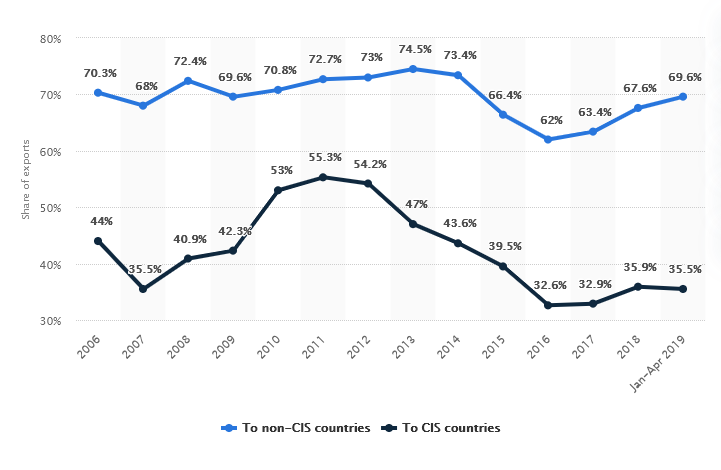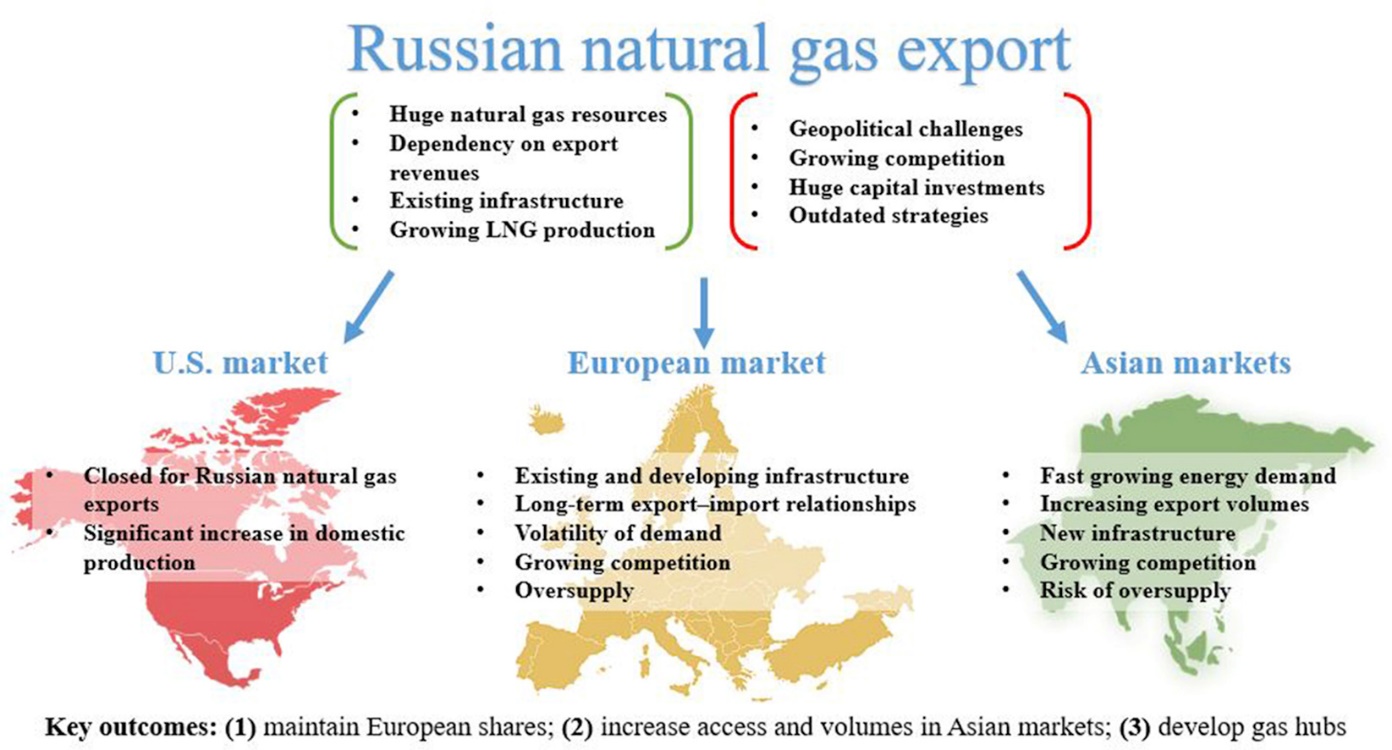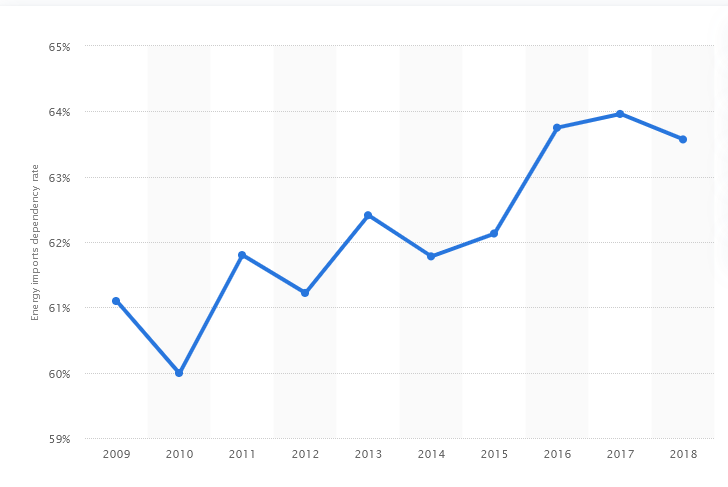Introduction
In the 21st century, the geopolitical landscape of the world has been changing rapidly. Several decades prior, the separation of powers in the bipolar world was evident, as the clash between the ideologies of the East and the West persisted throughout most of the 20th century. Nevertheless, following the collapse of the communist world, the diversity of the political landscape of Europe reached an unprecedented level. After several calm decades, the geopolitical turbulence resumed amid new attempts to seize global power coming from the East. Vladimir Putin’s Russia has aimed at acquiring new elements of control over different regions of the world. Unlike previous centuries, the present does not allow to abuse of a nation’s military power without consequences, which is why global players have had to seek other means of ensuring their dominance. This idea corresponds to the common understanding of a hybrid war, as well.
At the same time, despite possible tense relations, Russia and the European Union maintain cooperation in several vital spheres where it is mutually beneficial. Aside from global security and counter-terrorism, the energy sector remains one of the key areas of cooperation between Russian and European experts. Nord Stream 2 is one of the most ambitious projects executed within this framework, and its very nature of it raises heated debates in the global community. In addition to the bilateral relations between Russia and Europe, namely Germany, this project has seen active interference on behalf of the United States. The American government deemed Nord Stream 2 a dangerous project posing risks to Europe’s security and independence, causing major impediments in the way of the pipeline’s construction. The scale of the initiative, as well as the controversy surrounding it, have attracted the attention of geopolitical experts from across the globe.
The issues related to Nord Stream 2 are viewed in the context of the general political landscape of the 2010-the 2020s, which is characterized by the increased striving for multipolarity. In a way, Nord Stream 2 has become more than a project of a pipeline ensuring a more active supply of natural gas between Russia and Western Europe. Its case is representative of the global geopolitical situation as a whole, in which there is a peculiar combination of contrasting opinions and a need for collaboration on topical issues. A case study of the context surrounding Nord Stream 2 will ensure a better understanding of the geopolitical situation in the 21st century. The purpose of this report is to examine the project, as well as its pertinent aspects in terms of the relations between the key powers of the world. It relies on a review of reputable sources, providing credible, relevant insight into the core themes of the discussion.
Critical Discussion
Energy Sectors in Germany and Russia
Cheap and stable supplies of reliable energy have become one of the keys to the steady development of a 21st-century nation. In the case of nations, which can boast abundant natural resources, extraction, processing, and exporting energy materials can become a profitable endeavor. However, it should be executed properly to ensure a mutually beneficial outcome for all sides. For Russia, energy export is one of the key economic activities, ensuring a considerable portion of the national revenues (Kutcherov et al., 2020). Evidently, most part of this energy export is conditioned by the countries forming the Commonwealth of Independent Nations (ex-USSR republics). Figure 1 represents the share by destination of energy products in total Russian exports across the 2000s and 2010s.

As it becomes apparent from the graph, the amount of energy supply export saw a decline in the mid-2010s following a new turn in terms of geopolitical tensions between Russia and the West. Hahn (2018) states that the negative development was conditioned by the actions of the former in Ukraine, followed by its aggressive stance against the Western policies in regards to the issue. Accordingly, the partial loss of an important export market entailed financial repercussions for Russia, whose energy sector sought an effective solution to the crisis. As shown in Figure 2, three major possibilities in terms of energy export existed for the country. While North America appears to be a viable destination due to its developed economic capacity and infrastructure, the unprecedented tensions closed this region for full-scale export from the Russian side. Simultaneously, while Asia may be closer to Russia in terms of politics, it demonstrates considerable economic risks, which prevent the economic export from reaching its full potential. Europe, on the other hand, is placed in-between in the “yellow” zone, as the tensions do not fully outweigh a possibility of cooperation.

Despite objective political differences in regards to the current events, Germany, being one of the leading forces of the European Union, has retained some degree of cooperation with the Russian Federation. This common work mostly lies in the area of energy supplies, as cooperation in this sector has proved to be mutually beneficial. Figure 3 provides data showing that Germany has consistently shown an over sixty-percent foreign energy dependency rate. These statistics imply that it is more profitable for the country to import foreign energy to meet the internal demand. At the same time, Russia remains one of the leading suppliers of natural gas and fossil fuel. Combined with the geographical proximity, this fact makes Russia the most convenient source of energy supplies for Germany and the E.U. Other options may include, for example, shale gas from the United States, which, however, is much more expensive. Germany has engaged in trade relations in this area, although the planned import scale is far from optimal (U.S. shale gas, 2019). Furthermore, objective logistics-related challenges prevent the supply from reaching the desired levels capable of meeting Europe’s demand.

Nord Stream 2 and the Hybrid War
In order to meet the growing demand for natural gas energy, Germany and other European powers have engaged in various projects with Russia. Nord Stream 2 is a highly ambitious initiative launched by Russia and the European Union. According to the official website of the project, it is going to comprise one of the world’s largest offshore pipelines with a length of over 1230 kilometers (“Nord Stream 2”, n.d.) This way, it is expected to meet Europe’s growing demand for natural gas energy, which is projected to increase by 120 bcm per year by 2035 (“Nord Stream 2”, n.d.) Simultaneously, the pipeline will increase Russia’s energy export capability, ensuring a positive economic impact and making the project mutually beneficial.
However, Nord Stream 2 raised a high level of controversy worldwide due to the concerns surrounding its alleged political dependence. As discussed earlier, after 2014, which marked the beginning of the Russian invasive policy in Ukraine, the former demonstrated an aggressive stance in regards to global affairs (Hahn, 2018). Most parts of the discussed project’s execution happened amid the increased political tensions, which added a new dimension to the discussion. Prior to the current era, namely during the Cold War of the second half of the 20th century, the global dialogue was determined by the rapid development of nuclear military forces and the threat of mutual destruction.
While the risks have persisted in the 21st century, the nature of the opposition has changed, acquiring the form of a so-called hybrid war. This notion implies that geopolitical opponents refrain from active militarized debates, focusing on alternative means of ensuring their dominance through economic processes and cyberspace (Scekic, 2016). This way, the world’s leading powers can expand their areas of influence without casualties and losses of a direct confrontation. Nord Stream 2 may be seen as Russia’s instrument of increasing Europe’s dependence on its energy supplies, providing additional leverage in case of further disputes and sanctions. From the other perspective, the advantage of NATO consists of additional economic pressure on Russia, especially while the project is still on the construction stage. The importance of the pipeline for the former may be utilized by the West in the way of reaching an accord on topical issues involving Russia by outlining the risks of project termination. However, this approach is only possible through the responsible actions of NATO’s leadership, utilizing the benefits of Nord Stream 2 while taking the necessary precautions.
Germany and the NATO
Germany is one of the leading economies of the European Union and the world, in general. It plays a role of pivotal importance in global affairs, being a member of both the Group of Seven (G7) and the Group of Twenty (G20). However, the importance of former organizations, uniting the leading economies of the planet, has reduced over the recent years in favor of G20 states, whose combined economies represent over 75% of the world’s G.D.P. (McBride and Chatzky, 2019). At the same time, Germany is one of NATO’s leading powers, serving to consolidate the defense potential of the Western world. This position implies a certain clash of interests between the desire for independent policies and the common goals of the Alliance.
From one perspective, Germany should be free to pursue its agenda in terms of finding beneficial routes of cooperation. On the other hand, one may suggest that some of these policies undermine the unity of the Alliance, as well as its general potential. Placing a nation in a dependent position in regards to a potential opponent amid an alleged hybrid war is an unfavorable development for NATO. Nevertheless, despite common objectives, NATO’s member states have their individual demands, which should be met for the countries to strive. It is possible that some nations may not share these specific views, which implies that a compromise is necessary within the Alliance. This way, if nations are to find common ground in regards to such projects as Nord Stream 2, the degree of international cooperation within the framework of G20 will reach optimal levels.
Russia and the NATO
NATO, as a whole, is usually discussed within the framework of its lasting confrontation with Russia. Initially, the Alliance was formed to counter the spread of socialism across the globe, which was instigated by the Soviet Union and its allies. In spite of the fact that the socialist block collapsed in the 1990s, the role of the main opponent of NATO was eventually inherited by Russia. While the degree of militarized confrontation may not be as significant as previously, both sides continuously exchange accusations.
Russia’s behavior may reflect the emerging trend of the struggle for multipolarity in global affairs. According to Dadush and Stancil (2010), the economic power and political importance of emerging nations are projected to remain on a stable increase throughout the 21st century. Therefore, NATO, uniting the world’s wealthiest countries, will eventually face stronger opposition from previously disregarded players. Russia is one of the countries, which actively promotes the principle of multilateral politics, as it suits its objective of undermining the dominance of the West. Evidently, the enhancement of the Russian power poses a threat to NATO’s leadership amid the general tendency toward the empowerment of emerging states.
Perspective of the United States
The United States is an important side of most global affairs due to the undeniable influence of this country. In many ways, the role of the U.S. as the world’s leading economy symbolizes the era of the so-called monopolar politics, which persisted from the 1940s (Dadush and Stancil, 2010). In the 20th century, Europe became a major territory of disputes between two superpowers – the U.S. and the U.S.S.R. After the Cold War, the influence of the East reduced to zero, whereas most of the continent joined NATO, the main agenda of which is heavily influenced by the U.S. In today’s age of hybrid conflicts, every aspect of influence is important.
Considering all the discussed aspects of the Nord Stream 2 initiative, it is natural for the United States to feel alarmed by this development. According to the position of the American government, the construction of the pipeline undermines the independence of the European nations while providing Russia with reasons to increase its military presence in the Baltic area (Putin’s pipeline, 2019). Brauß and Racz (2021) state that this region has always been desirable for Russia in terms of enhancing control over it, which was undermined after the collapse of the Soviet Union and the Westernization of the Baltic States. In the light of these facts, it appears difficult to separate Nord Stream 2 completely from the political discourse.
Russia and Germany Relationship: Possible Outcomes
Having considered all the pertinent aspects of the situation, it is possible to outline a possible outcome of the situation for the relationship between Russia and Germany, as well as worldwide. First of all, the project of Nord Stream 2 carries significant economic benefits for both sides. Russia will have a stable demand for its immense supply of natural gas, amending the recently observed decrease in this regard. At the same time, Germany will have access to a sufficient amount of energy at a reasonable price. Evidently, there are certain geopolitical risks involved in this scenario. Germany and the E.U. may, indeed, fall into stronger dependence on the Russian fuel, increasing the risks of the latter simply blocking the pipeline in case of a conflict.
On the contrary, however, if Europe prepares a back-up plan for such a development, this trade relationship will serve as an additional argument, prompting Russia to a civilized discussion. While the issue exists in the global context, Russia and Germany should be allowed to prioritize their individual interests, as long they do not compromise the global security framework. That being said, if both sides manage to create an effective cooperation model, it may symbolize that the economic benefits of the citizens transcend political disputes.
Contemporary Geopolitics and the New World Order
To some extent, the discussions surrounding Nord Stream 2 reflect the nature of the emerging world order of the 21st century. Dialogue has replaced arms races as the primary means of issue resolution today, which is evident in this case (Committee for Development Policy, 2014). Moreover, unipolar views have become gradually rejected by more parts of the world, as many countries openly oppose NATO and the United States, in particular. Russia is not the only state reflecting this tendency, as, for example, China has managed to contend with the world’s first economy without incorporating itself into the Western paradigm of thought (Er-Rafia, 2018). The range of emerging economies acquiring substantial power is only going to increase, as projected by Dadush and Stancil (2010). Therefore, contemporary geopolitics is an age of dialogue and compromise.
Conclusion
In conclusion, Nord Stream 2 is a project, which has raised a considerable amount of controversy globally. From one perspective, the pipeline is mainly an economic arrangement between Russia and the European Union represented by Germany. It is highly promising for both economies, and the construction of Nord Stream 2 has the potential to meet Europe’s growing demand for natural gas through 2035. On the other hand, third parties express legitimate concerns as to the political and even military aspects of the pipeline. Russia’s interests in extending its control over the Baltic region are well-documented, and expanding the infrastructure in this area may serve this purpose. In addition, the pipeline has the potential to make Europe highly dependent on Russia’s supplies. Overall, this case represents the contemporary pursuit for independent geopolitics, in which both parties are to decide the best course of action via civilized discussion and compromise.
References
Brauß, H. and Racz, A. (2021) Russia’s strategic interests and actions in the Baltic region. Web.
Committee for Development Policy. (2014) Global governance and global rules for development in the post-2015 era. Web.
Dadush, U. and Stancil, B. (2010) The world order in 2050. Web.
Elagina, D. (2020) Share of energy products in total exports in Russia from 2006 to April 2019, by destination. Web.
Er-Rafia, F. Z. (2018) How did China become the world’s second economic power?. Web.
Hahn, G. M. (2018) Ukraine over the edge: Russia, the West and the “new Cold War”. North Carolina: McFarland.
Kutcherov, V., Morgunova, M., Bessel, V., and Lopatin, A. (2020) ‘Russian natural gas exports: an analysis of challenges and opportunities’, Energy Strategy Reviews, 30. Web.
McBride, J. and Chatzky, A. (2010) The group of twenty. Web.
Putin’s pipeline: The Nord Stream 2 gas pipeline is a Russian trap (2019). Web.
Scekic, R. (2016) ‘Geopolitical strategies and modernity: multipolar world of nowadays’, Journal of Liberty and International Affairs, 1(3), 84-93.
Statista Research Department. (2020) Dependency rate on energy imports in Germany from 2009 to 2018. Web.
U.S. shale gas targets Europe despite Russian supply boom (2019). Web.
